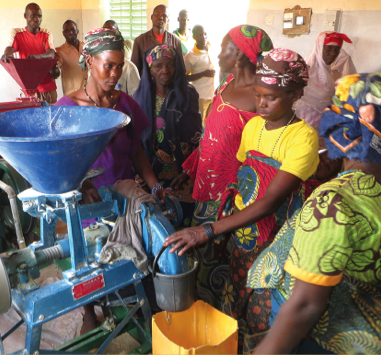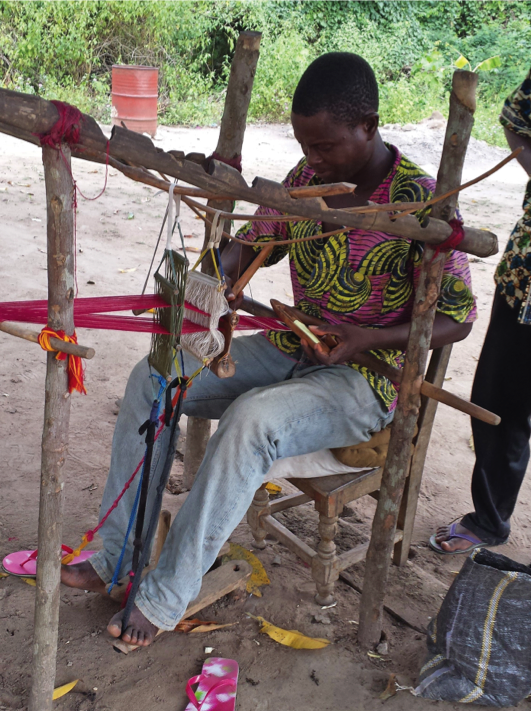INSIDE STORY – Working towards a Smart Energy Path: Experience from Mali

Introduction
Three West African countries – Benin, Mali and Togo – have participated in the project ‘Energy, Ecodevelopment and Resilience in Africa (EERA)’, which offers lessons to other countries on approaches that can be taken toward a ‘Smart Energy Path’.1 This strategy aims to meet peoples’ energy needs in an environmentally sustainable, resilient way, and is guided by a participatory decision-making process.
At present, energy services in the three countries are inadequate and unsustainable. To overcome this, the EERA project reinforced national technical and institutional capacities and implemented a multi- sectoral participatory approach to decision-making in each country. This went beyond the ministries in charge of energy and included analyses of national energy systems and policies. The project created national and regional liaison committees to promote the principles of the Smart Energy Path to decision-makers and encourage their integration into the institutional energy framework of each country.
MALI: In 2010, less than 6% of the rural population in Mali had access to electricity. Over 50% of the electricity consumed in Mali is generated from hydropower plants. Hydropower plants are highly sensitive to rainfall, often experiencing a 20% drop in production during years of low rainfall, making the country highly vulnerable to climate change.
Key Messages
-
The governments of Mali, Benin and Togo place a high priority on providing collective energy services: energy that delivers health and education benefits and clean water to society.
-
These services are prioritised over the provision of household energy, because collective energy services play an important role in development and poverty alleviation.
-
However, renewable energy has not been fast-tracked as a way of increasing societies’ access to energy. The lack of recent, reliable data on renewable energy, energy efficiency and the vulnerability of the energy sector to climate change is no excuse for inaction.
-
All three countries are decentralising power to subnational governments. It is important that the institutional and regulatory frameworks define and reinforce the role of these decentralised authorities in energy policies and programmes.
-
The key to defining reasonable timeframes and priorities for national energy policy and programmes is to involve sectors beyond the energy sector, such as health, education, decentralisation and development, in decision-making committees.
Implications for practitioners
Data access is crucial but not a reason for inaction: Accessing recent and reliable data was not easy in the three countries. In particular, finding data on industrial energy efficiency, distributed renewable energy, gender information and local pollution proved to be a challenge. Moreover, the multidimensional nature of the analysis forced national experts to learn to use new sets of data and contact stakeholders they were not used to collaborating with. Initially, local teams felt they would not be able to complete the required analysis, until they realised: i) other ministries, agencies, or universities may have the required data and were willing to share them; ii) ‘proxy’ or substitute information could be used to compensate for the lack of specific data, without reducing the value of the analysis.
Thinking outside the box: The multidimensional analysis of the energy system and the priority given to energy service needs required national experts to think differently – for example, to focus on the needs of end-users rather than on conventional supply-side strategies. Initial versions of national assessments usually focus on descriptions of the indicators and lack analysis of the drivers behind the indicators.
To be successful, the project needed good guidance rather than predefined solutions, as well as a sufficiently long planning time so that teams had could develop and adapt their own ideas – and gain greater ownership of planning and implementation.
The project showed that it is critical to involve government officials in order to ensure ownership by stakeholders and buy-in from decision-makers.
Participatory governance is a driver of change : The inclusion of a wide range of sectors, including non-energy sectors, in the development of energy policies helps to enrich the process. To reach solutions that take into account the full range of needs and priorities of all stakeholders, the process needs to bring together not only the ministries and experts of the sectors of energy and environment in the definition and implementation of energy policies, but also governmental and non-governmental experts in health, education and development, as well as local authorities.
This was challenging at times, given the many competing views and priorities. However, the participatory setting allowed existing resentments and preconceptions to emerge and be openly discussed, and in the end all participants agreed that the collaboration was positive and helped expand their own awareness of the expertise available within their countries.

Outcomes and Impacts
In Mali: The committee in Mali is exploring synergies with existing institutions and plans, such as the National Action Plan on Renewable Energy, the National Action Plan on Energy Efficiency, and the Sustainable Energy for All agenda.
Development of a Common Declaration: To complement the national actions of the Liaison Committees, the project team formed a Regional Stakeholder Council to discuss and disseminate the principles developed in the EERA project, beyond the limits of projects and countries. Composed of individual experts from five francophone African countries, the group developed a Common Declaration, which was presented at the 20th annual Conference of the Parties (COP 20) of the United Nations Framework Convention on Climate Change (UNFCCC) held in Peru in December 2014.
Authors and Funding
Maryse Labriet, Christine Fiebig and Michel Labrousse,HELIO International
The report “Inside Stories: Working towards a Smart Energy Path: Experience from Benin, Mali and Togo” (see right-hand colum for a link to download) is an output from a project commissioned through the Climate and Development Knowledge Network (CDKN). CDKN is a programme funded by the UK Department for International Development (DFID) and the Netherlands Directorate-General for International Cooperation (DGIS) for the benefit of developing countries.
(0) Comments
There is no content